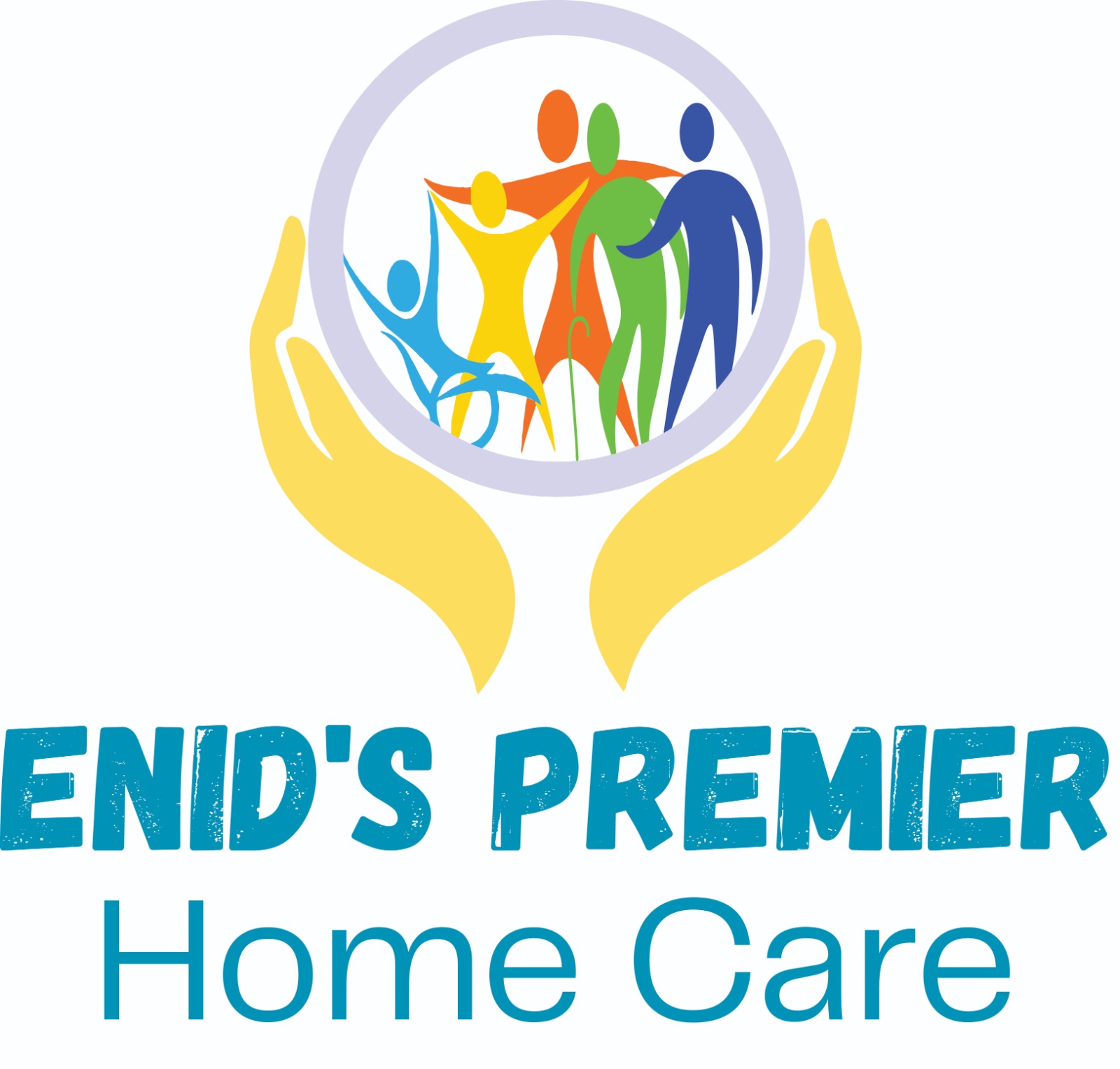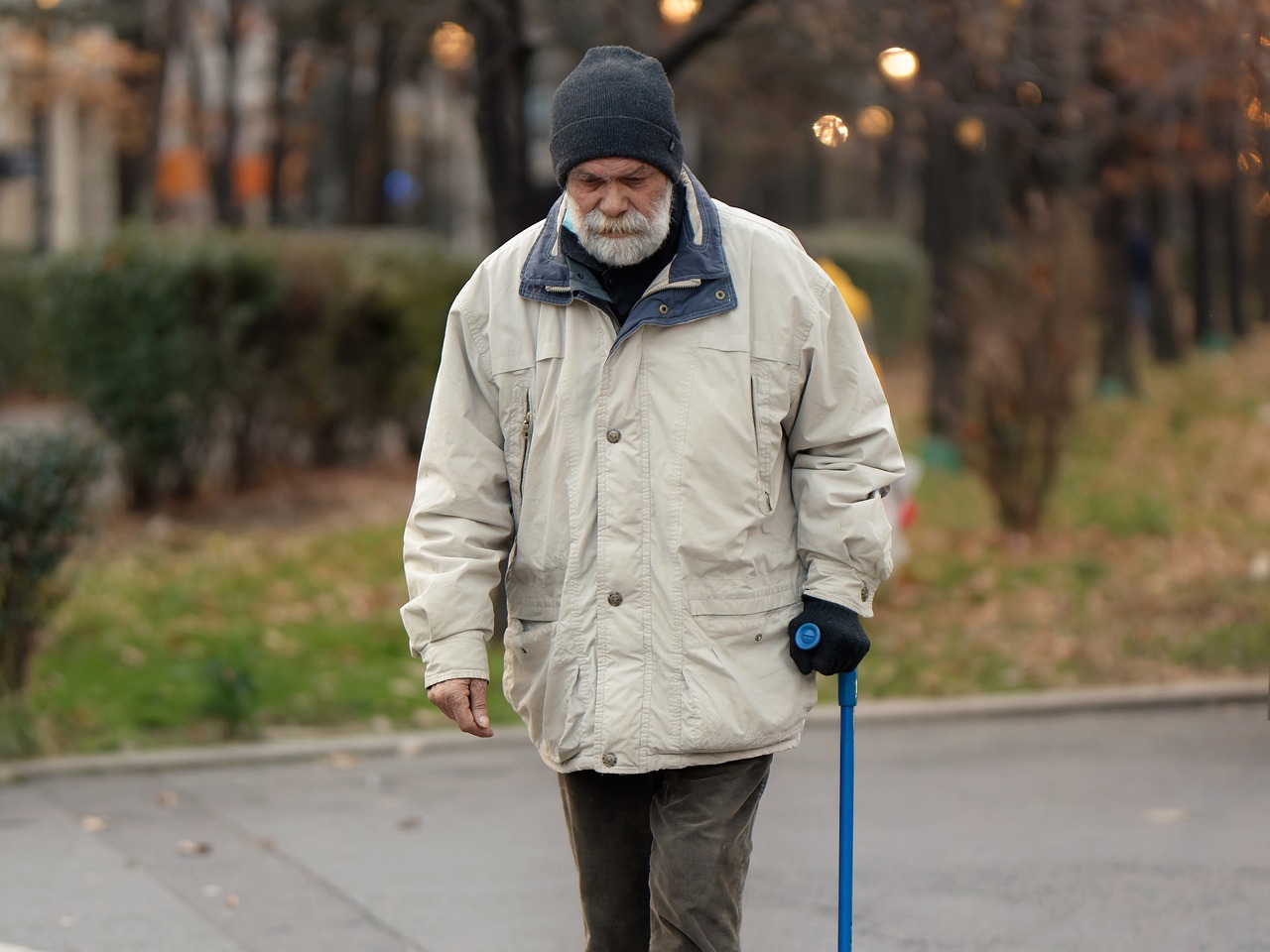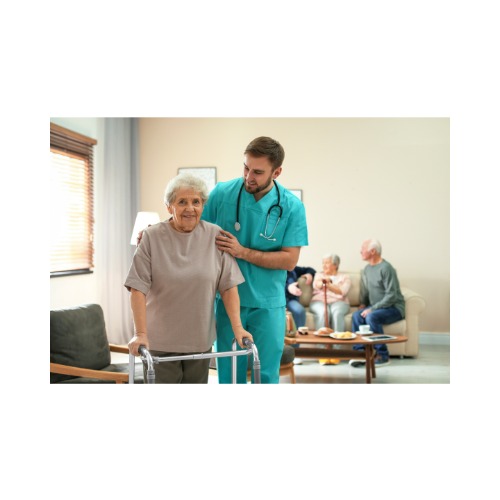Blogs
Our mental health is just as important as our physical health, yet it can often be overlooked in our senior community. Anxiety and depression in seniors might not always look the same as they do in younger people. Instead of dramatic expressions of sadness or panic, seniors may experience subtle shifts in mood, changes in sleep patterns, loss of interest in favorite activities, or even physical symptoms like fatigue or aches.
These conditions can be influenced by factors such as:
- Social Isolation: Reduced social interaction can lead to feelings of loneliness and despair.
- Health Concerns: Chronic illnesses or sudden changes in physical health can contribute to anxiety.
- Loss and Grief: The loss of friends, family, or a spouse can trigger significant emotional distress.
Understanding these factors is the first step in addressing mental health challenges and seeking appropriate support.
Recognizing the Signs
Identifying anxiety and depression early can make a significant difference. Look for:
- Changes in Behavior: Withdrawal from social activities, reduced appetite, or neglecting personal hygiene.
- Emotional Shifts: Increased irritability, persistent sadness, or heightened feelings of worry.
- Physical Symptoms: Unexplained aches, fatigue, or changes in sleep patterns.
If you or a loved one are noticing these signs, consider reaching out to a healthcare professional or a trusted caregiver.
Practical Strategies for Managing Anxiety and Depression
While professional guidance is essential, there are daily practices that can help manage symptoms:
- Stay Connected: Maintaining relationships with friends, family, and community groups can combat feelings of isolation.
- Engage in Physical Activity: Regular exercise—even a short walk—can boost mood and overall well-being.
- Pursue Hobbies: Activities that spark joy and creativity can provide a positive outlet for emotional expression.
- Mindfulness and Relaxation: Techniques like meditation or deep breathing exercises can reduce stress and promote mental clarity.
- Professional Support: Don’t hesitate to reach out to mental health professionals. Therapy and counseling provide a safe space to talk about your experiences and develop personalized coping strategies.
How Enid's Premier Home Care, LLC Supports Your Mental Health
At Enid's Premier Home Care, LLC, we believe that compassionate, comprehensive care goes beyond physical assistance. Our team is dedicated to:
- Personalized Care Plans: Tailoring support services to meet the unique emotional and physical needs of each senior.
- Community Engagement: Encouraging participation in local events and support groups to build lasting connections.
- Resource Connection: Helping families navigate and access mental health resources, from local therapists to community support initiatives.
- Regular Check-Ins: Ensuring that our seniors feel seen, heard, and supported through regular interactions with our caring staff.
Our goal is to create an environment where every senior feels valued and empowered to live their best life, both physically and mentally.
Seeking Help and Moving Forward
If you’re experiencing anxiety or depression, remember that you’re not alone. It’s okay to ask for help, and taking that first step toward support can lead to significant improvements in your overall well-being. Whether you’re looking for professional advice or simply need someone to talk to, know that help is available.
For more information on our services or to connect with a member of our team, please visit our website or contact us directly. At Enid's Premier Home Care, LLC, we’re here to help you navigate these challenges with compassion and care.
Together, let’s foster a community where every senior feels empowered, understood, and supported on their journey to mental wellness.
Note: This blog post is for informational purposes only and is not intended as a substitute for professional medical advice. Always consult a qualified healthcare provider for concerns regarding mental health.

As we age, maintaining emotional, cognitive, and physical well-being becomes increasingly important. Music therapy has emerged as a powerful tool in senior care, providing holistic benefits that improve quality of life. This evidence-based practice uses music to address physical, emotional, and social needs, making it especially impactful for seniors dealing with conditions like dementia, Parkinson’s disease, or depression. Here’s an in-depth look at how music therapy is enhancing senior care.
What is Music Therapy?
Music therapy involves the use of music by a trained therapist to achieve therapeutic goals. It can include listening to music, playing instruments, singing, composing, or even moving to music. This type of therapy is personalized, tailored to an individual’s preferences, needs, and abilities.
Benefits of Music Therapy for Seniors
-
Improves Cognitive Function
-
For seniors with dementia or Alzheimer’s, music therapy can evoke memories and improve focus. Familiar songs often stimulate long-term memory, fostering a sense of connection and recognition.
-
-
Reduces Stress and Anxiety
-
Music has a calming effect, helping to reduce stress, agitation, and anxiety. This is particularly beneficial for seniors who may feel overwhelmed or confused due to cognitive decline.
-
-
Enhances Emotional Well-Being
-
Music therapy provides a creative outlet for self-expression, helping seniors process emotions and feel more positive. Singing or playing an instrument can boost mood and self-esteem.
-
-
Promotes Physical Health
-
Activities like clapping, tapping, or dancing to music encourage physical movement, improving mobility, coordination, and strength. These activities can also enhance circulation and reduce stiffness.
-
-
Encourages Social Interaction
-
Group music therapy sessions foster socialization and create a sense of community. Singing or playing instruments together can strengthen bonds and reduce feelings of isolation.
-
Music Therapy and Dementia
Seniors with dementia often respond profoundly to music therapy. Even when verbal communication becomes challenging, music can bridge the gap, creating moments of clarity and connection. Research has shown that music therapy can:
-
Decrease agitation and behavioral issues.
-
Improve communication and social engagement.
-
Provide comfort and reduce feelings of loneliness.
Implementing Music Therapy in Senior Care
Music therapy can be incorporated into senior care in various ways:
-
Professional Sessions: Licensed music therapists work one-on-one or with groups to create tailored programs. They select music that aligns with a senior’s history, culture, and preferences.
-
Daily Activities: Caregivers can integrate music into daily routines by playing favorite songs, encouraging singing, or using music as a background for relaxation.
-
Community Programs: Senior care centers often host music therapy events, such as sing-alongs, drumming circles, or dance classes.
Music therapy is a transformative approach to senior care, offering numerous physical, emotional, and social benefits. By tapping into the universal language of music, it fosters joy, connection, and healing for seniors at every stage of life. Whether through professional sessions or simple daily interactions, music therapy is a gift that can profoundly enrich the lives of our elderly loved ones.
At Enid’s Premier Home Care, we believe in providing holistic care that nurtures the mind, body, and spirit. Contact us at (713) 239-3756 to learn more about how we integrate music therapy and other innovative approaches into our senior care services.

Parkinson’s disease is a progressive neurological disorder that affects movement, balance, and coordination. Recognizing the early signs and symptoms is crucial for timely diagnosis and intervention, which can help improve quality of life for those affected. Here’s what you need to know:
Early Signs of Parkinson’s Disease
In its early stages, Parkinson’s disease may present subtle symptoms that are easy to overlook. These include:
-
Tremors
-
A slight shaking or trembling, often starting in the hands or fingers when at rest.
-
Tremors may also occur in the chin, lips, or legs.
-
-
Bradykinesia (Slowness of Movement)
-
Movements become noticeably slower, making daily tasks more challenging.
-
Simple activities, like buttoning a shirt or walking, may take longer than usual.
-
-
Stiffness and Rigidity
-
Muscle stiffness that limits range of motion, often accompanied by pain.
-
This can occur in any part of the body, including the arms, legs, or neck.
-
-
Postural Instability
-
Balance issues or difficulty standing upright.
-
A tendency to stoop or lean forward while walking.
-
-
Changes in Handwriting
-
Handwriting may become smaller or cramped, a condition known as micrographia.
-
-
Loss of Smell
-
A diminished or complete loss of the ability to smell certain foods or scents.
-
Advanced Symptoms
As Parkinson’s disease progresses, symptoms can become more pronounced and affect various aspects of daily life:
-
Speech Changes
-
Speech may become soft, slurred, or monotone.
-
Difficulty finding the right words or speaking clearly.
-
-
Gait Abnormalities
-
A shuffling walk with reduced arm swing.
-
Difficulty starting or stopping movement, known as freezing.
-
-
Facial Expression Changes
-
Reduced facial expressions, sometimes called a “masked face.”
-
-
Cognitive Decline
-
Memory problems or difficulty concentrating.
-
In some cases, Parkinson’s can lead to dementia.
-
-
Sleep Disturbances
-
Trouble falling asleep, vivid dreams, or acting out dreams (REM sleep behavior disorder).
-
When to Seek Help
If you or a loved one notice any of these symptoms, it’s important to consult a healthcare professional. Early diagnosis can lead to better management of the disease and access to therapies that may slow progression.
How Non-Medical Home Care Can Help
For individuals living with Parkinson’s disease, non-medical home care services can provide essential support. At Enid’s Premier Home Care, we offer:
-
Mobility Assistance: Helping with walking, transferring, and exercises to improve strength and balance.
-
Daily Living Support: Assistance with grooming, dressing, and meal preparation.
-
Companionship: Emotional support to reduce feelings of isolation.
-
Respite Care: Giving family caregivers a much-needed break while ensuring quality care for their loved ones.
Understanding the signs and symptoms of Parkinson’s disease is the first step in seeking timely help and improving quality of life. If you’re looking for compassionate, professional care for a loved one living with Parkinson’s, Enid’s Premier Home Care is here to support you every step of the way.
Contact us today to learn more about our services and how we can help. Together, we can make a difference.

Caring for a spouse is an act of love and devotion, but it can also bring emotional challenges that are difficult to navigate. The transition from being a partner to becoming a caregiver often involves feelings of loss, stress, and uncertainty. While these emotions are normal, finding ways to manage them is essential for your well-being as well as your spouse’s care. Here are practical strategies to help you cope with the emotional challenges of caregiving.
1. Acknowledge and Accept Your Feelings
It’s normal to experience a wide range of emotions as a caregiver—sadness, frustration, guilt, or even resentment. Acknowledge these feelings without judgment and remind yourself that they don’t make you a bad caregiver or spouse. Writing in a journal or speaking with a trusted friend can help you process these emotions.
2. Build a Support System
You don’t have to face this journey alone. Reach out to family members, friends, or neighbors for assistance with caregiving tasks or emotional support. Joining a support group for caregivers can also provide a safe space to share experiences and gain advice from others in similar situations. Professional caregiving services, like those provided by Enid’s Premier Home Care, LLC, can lighten your load and offer additional expertise.
3. Set Healthy Boundaries
Caregiving can consume your time and energy if boundaries aren’t in place. Learn to say no to requests that overwhelm you, and delegate tasks whenever possible. Establishing clear boundaries ensures you have time for self-care and other important aspects of your life.
4. Prioritize Self-Care
It’s easy to neglect your own needs while focusing on your spouse. However, self-care is vital for maintaining your physical and emotional health. Make time for activities that relax and rejuvenate you, whether it’s taking a walk, reading a book, or enjoying a hobby. Ensure you’re eating well, staying active, and getting enough sleep.
5. Communicate Openly
Maintaining honest communication with your spouse is crucial. Talk about your feelings, fears, and hopes as you navigate this journey together. Open communication fosters understanding and strengthens your bond, even as your roles evolve.
6. Seek Professional Help
If the emotional toll becomes overwhelming, consider speaking with a counselor or therapist. Professional guidance can help you work through complex emotions and develop coping strategies. Therapy can also be a space to address changes in your relationship dynamic.
7. Embrace Small Moments of Joy
Amid the challenges, find opportunities to share joyful moments with your spouse. These can be as simple as reminiscing about fond memories, enjoying a favorite meal together, or watching a beloved movie. These moments can strengthen your connection and bring a sense of normalcy.
8. Utilize Professional Caregiving Services
Sometimes, the best way to care for your spouse is to seek outside help. Professional in-home caregivers can assist with daily tasks, medical needs, or companionship, allowing you to focus on being a loving partner rather than solely a caregiver. Enid’s Premier Home Care, LLC specializes in providing compassionate, personalized care that supports both the individual and their family.
Final Thoughts
Caring for a spouse is a deeply personal and meaningful journey, but it’s important to remember that your well-being matters too. By acknowledging your emotions, seeking support, and practicing self-care, you can navigate the challenges of caregiving while maintaining a strong and loving relationship with your spouse.
If you’re feeling overwhelmed or need additional support, please contact Enid’s Premier Home Care, LLC. Our team is here to help lighten the load and provide the high-quality care your family deserves.
Contact Us Today:
Website: https://www.enidspremierhomecare.com
Phone: (713) 239-3756
Email:
#CaregiverSupport #EmotionalWellBeing #CaringForASpouse #SelfCareForCaregivers #HomeCareSupport #CompassionateCare #FamilyCaregiving #SeniorCare #HomeHealthcareInMissouriCityTX #HomeCareForElderlyInHouston #AgingWithDignity

Caring for a senior with dementia requires patience, compassion, and structure. A well-designed daily routine can provide comfort, reduce confusion, and improve their overall quality of life. At Enid's Premier Home Care, a trusted senior care provider in Houston, we understand the importance of establishing routines tailored to each individual’s needs. Below is our detailed guide to creating a routine that works for your loved one.
Why Routines Matter for Seniors with Dementia
Consistency is key for seniors with dementia. A predictable schedule can help:
- Reduce anxiety and stress.
- Increase feelings of safety and familiarity.
- Promote better sleep patterns and overall well-being.
- Provide caregivers with a clear structure for daily tasks.
By partnering with one of the best home care agencies in Houston, families can receive professional guidance in setting up routines that align with their loved one's cognitive and physical abilities.
Steps to Create a Safe Daily Routine
1. Prioritize Familiar Activities
Incorporate tasks your loved one is familiar with and usually enjoys, such as morning hygiene routines, meal preparation, or favorite hobbies. This will promote independence and trigger positive memories.
2. Keep It Simple and Consistent
Avoid overwhelming schedules. Keep activities simple and follow the same order daily to establish a rhythm that is easy to follow.
3. Balance Activity and Rest
Incorporate periods of activity, like light exercises or arts and crafts, and allow plenty of time for rest. Overstimulation can lead to frustration or confusion.
4. Include Meaningful Engagement
Activities like gardening, listening to music, or reminiscing over photo albums can help seniors with dementia connect with their surroundings and loved ones.
5. Schedule Meals and Medications
Mealtimes and medications should occur at the same times daily. This consistency ensures their health needs are met and promotes better eating habits.
6. Seek Support from In-Home Care Professionals
Caregivers often need support, and professional in-home care for seniors can provide the assistance families require. Agencies like Enid's Premier Home Care can offer personalized care plans to make routines easier to manage.
Sample Daily Routine for a Senior with Dementia
Here’s an example to guide you:
- 7:00 AM: Wake up, morning hygiene routine, and breakfast.
- 8:30 AM: Light exercises or a short walk.
- 10:00 AM: Quiet activity (puzzles, reading, or listening to music).
- 12:00 PM: Lunch and medication.
- 1:00 PM: Rest or nap.
- 3:00 PM: Afternoon engagement (gardening, family visit, or crafts).
- 5:00 PM: Dinner.
- 6:30 PM: Relaxation time (watching a favorite show or chatting).
- 8:00 PM: Evening hygiene routine and bedtime preparation.
How Enid's Premier Home Care Can Help
At Enid's Premier Home Care, we specialize in providing compassionate, personalized senior care in Houston. Our experienced caregivers work with families to create routines that promote comfort, dignity, and joy for seniors with dementia.
Whether you need guidance or full-time assistance, trust one of the best home care agencies in Houston to provide the quality care that your loved one deserves.
Let Us Support Your Journey
Creating a daily routine for a senior with dementia doesn’t have to be overwhelming. With the right plan and the help of dedicated professionals, you can ensure your loved one feels secure and cared for every day. Contact Enid's Premier Home Care today at (713) 239-3756 to learn more about our in-home care for seniors and how we can support your family.
#DementiaCare #SeniorCareInHouston #BestHomeCareAgencyInHouston #InHomeCareForSeniors #CompassionateCare #DailyRoutineForDementia #SeniorLiving #DementiaSupport #HoustonCaregivers #HomeCareWithHeart #EnidsPremierHomeCare
The holiday season is a time for joy, celebration, and spending quality time with family and friends. However, for many families, especially those caring for aging loved ones or individuals with special needs, the holidays often come with mixed emotions, including feelings of stress and overwhelm. Balancing caregiving responsibilities with the hustle and bustle of the season can feel like a daunting task. That’s where home care services come in, offering support and peace of mind when you need it most.
Here are some of the primary benefits of using home care services during the holidays:
1. Extra Support During a Busy and Hectic Season
From shopping for gifts and preparing festive meals to decorating the home and hosting gatherings, the holiday season can quickly become overwhelming. For family caregivers, these responsibilities are added on to their full plate of caring for their loved one who is unable perform certain activities of daily living (ADLs) on their own.
Home care services provide the extra support you need during this busy time. Our professional and highly-qualified caregivers can assist with daily tasks such as meal preparation, dressing and grooming, light housekeeping, and running errands, freeing up your time and energy to focus on enjoying the season.
2. Ensuring Comfort and Safety for Loved Ones
In most cases, our daily routines change during the holiday season because this is the time when we have visiting relatives, when we travel, or hosting guests. For seniors and individuals with disabilities, these changes can be unsettling and cause them to feel anxious. Home care services ensure your loved ones remain safe, comfortable, and well-cared for in the familiarity of their own home, even amidst the hustle and bustle of the holiday season.
Whether it’s assistance with mobility, help with personal care tasks, or simply companionship, having a caregiver available can provide the stability and reassurance your loved ones need during this time of year.
3. Quality Time Together
The holidays are all about creating cherished memories with those you love. However, caregiving can sometimes leave you feeling too tired or preoccupied to fully enjoy the moment. By enlisting the help of a home care provider, you can step away from caregiving duties and focus on spending quality time with your family.
Instead of worrying about who will help mom with her medications or assist dad with his meals, you can relax and enjoy your family’s festive traditions, whether that be baking cookies, singing carols, or simply sharing stories around the table. To enjoy the holiday season without feeling stressed and overwhelmed, contact us at Enid’s Premier Home Care to schedule a free in-home assessment as soon as possible. Our phone number is (713) 239-3756 and we can also be reached via email at
4. Stress Relief for Family Caregivers
Caregiving is a selfless and rewarding role that gives loved ones a sense of peace, but it can also be physically and emotionally taxing—especially during the holidays. When a caregiver has to juggle caregiving responsibilities with holiday planning, they can experience burnout, leaving them feeling tired and drained when you should be celebrating.
Home care services offer family caregivers a well-deserved break from their seemingly endless caregiving duties. Whether you need someone to step in for a few hours or a few days to provide respite care, our professional and qualified caregivers can provide compassionate and reliable care, allowing you to recharge and take care of yourself.
5. Personalized Care That Meets Your Needs
One of the greatest benefits of home care services is that they offer flexible and personalized care. You can arrange for services that fit your unique needs, whether it’s occasional support during a family gathering, overnight care for added peace of mind, or ongoing assistance throughout the holiday season.
Caregivers can also cater to specific needs, such as providing transportation to holiday events, assisting with festive meal preparation, or engaging in holiday activities with your loved ones.
Tips for Making the Most of Home Care Services During the Holidays
- Plan Ahead: Reach out to a home care provider early to discuss your needs and schedule services. The holiday season is a busy time, so securing care in advance ensures you’ll have the support you need. You can reach us at Enid’s Premier Home Care at (713) 239-3756. You can also visit our website at www.enidspremierhomecare.com.
- Communicate Your Goals: Share your holiday plans and priorities with your caregiver. This allows them to better assist with tasks and activities that fits well with your plans for the season.
- Focus on Quality Time: Use the extra time and energy you gain from having a caregiver to connect with your loved ones and create lasting memories. Don’t forget to make some time for some self-care activities too!
A Season of Joy and Peace
The holidays should be a time of celebration and connection, not stress and exhaustion. By utilizing home care services for your loved ones, you can enjoy a season that is joyful, manageable, and stress free.
Whether you’re a caregiver who needs support or a family looking to ensure the well-being of a loved one, home care services offer the perfect solution to help you make the most of the holiday season. With the right support, you can focus on what truly matters: spending time with those you love and embracing the magic of the holidays.
If you’d like to learn more about how home care services can enhance your holiday experience, contact us at Enid’s Premier Home Care at (713) 239-3756. We’re here to provide compassionate, dependable care tailored to your family’s needs this holiday season and beyond. Don’t delay, call today!
#HolidayCare #StressFreeHolidays #FamilyTime #HomeCareSupport #CaregiverRelief #besthomecareagencyinHouston #compassionatecaregivers #affordablehomecareinHouston #besthomecareagencyinTheWoodlands #respitecare #stressfreeholiday #homecaretips #qualityhomecareinHouston
Written by Elisa E. Douglas, Ph.D., MSPH
As our loved ones age, their home environment can significantly impact their quality of life, safety, and independence. What once was a comfortable and functional living space may now pose hidden dangers that increase the risk of accidents and injuries. According to the CDC, falls are the leading cause of injury-related deaths among older adults, making fall prevention a top priority when caring for seniors. At Enid’s Premier Home Care, we understand the importance of creating a secure, accessible home environment that allows seniors to age in place with dignity and confidence.
In this article, we’ll provide an in-depth look at how to make homes safer for older adults, focusing on fall prevention, accessibility enhancements, and the role non-medical caregivers play in ensuring a secure living space. By taking these proactive steps, you can help your loved one maintain their independence and live comfortably in their home longer.
Why a Safe Home Environment is Important for Seniors
As we age, physical changes like decreased balance, muscle weakness, vision impairment, and slower reflexes can make everyday activities more challenging and increase the risk of accidents. In addition to physical changes, cognitive impairments such as dementia or Alzheimer’s can lead to confusion and disorientation, further complicating safety at home. A senior-friendly home addresses these changes, providing a space where older adults can navigate easily, complete daily tasks, and move around without fear of falling or injury.
Creating a safe home environment is not just about preventing accidents—it's about enhancing the overall quality of life, reducing stress for family caregivers, and ensuring that seniors can continue to enjoy their golden years comfortably and independently.
1. Reduce Fall Hazards in High-Risk Areas
Falls are the most common cause of injuries among seniors, and many falls occur at home. Fortunately, there are several ways to reduce fall risks in high-risk areas:
Remove Clutter and Obstacles: Keep walkways clear of clutter such as shoes, electrical cords, and pet toys. Move small furniture items, like stools and coffee tables, out of pathways to eliminate tripping hazards. Consider rearranging furniture to create a wider path for those using walkers or canes.
Secure Loose Rugs and Carpets: Loose rugs and carpets can be dangerous for seniors, especially those with mobility issues. Use non-slip backing or remove rugs altogether to reduce the risk of tripping.
Install Handrails and Grab Bars: Place handrails on both sides of staircases and install grab bars in critical areas like bathrooms, near the toilet, and inside the shower. These provide stability and support, helping seniors navigate slippery or uneven surfaces.
Improve Lighting: Proper lighting is essential for preventing falls. Make sure all rooms, hallways, and staircases are well-lit. Use bright, glare-free bulbs and add nightlights in bedrooms, bathrooms, and hallways to help seniors see clearly during nighttime trips.
Use Non-Slip Mats: Place non-slip mats in the bathroom, kitchen, and entryways to prevent slipping on wet or smooth surfaces. Choose mats that are firmly secured to the floor and do not shift when stepped on.
2. Make the Home Accessible for Seniors with Mobility Issues
Mobility challenges are common among older adults, making it difficult to safely navigate their home. Consider these modifications to make the home more accessible:
Create Wide Pathways: Rearrange furniture to create wider pathways that accommodate walkers, canes, or wheelchairs. This not only prevents tripping hazards but also makes it easier for seniors to move around without bumping into furniture.
Install Ramps Over Steps: If your loved one uses a wheelchair or has difficulty climbing stairs, install ramps at entryways and over small steps within the home. Ensure the ramps have a gentle incline and non-slip surface for added safety.
Lower Shelves and Cabinets: Make frequently used items more accessible by lowering shelf heights or relocating items to easy-to-reach drawers and cabinets. This reduces the need for seniors to use step stools or stretch, which could result in loss of balance.
Adjust Furniture Height: Consider raising the height of chairs, beds, and sofas to make it easier for seniors to sit down and stand up. Avoid furniture that is too low or too soft, as it can be difficult to get up from.
3. Safety Modifications for the Bathroom
The bathroom is one of the most hazardous areas for seniors due to slippery surfaces and limited space. Implement these safety modifications to reduce the risk of accidents:
Install a Raised Toilet Seat and Grab Bars: A raised toilet seat makes it easier for seniors to sit down and stand up without strain. Grab bars next to the toilet provide additional support and stability.
Use a Shower Chair and Handheld Shower Head: A shower chair allows seniors to sit while bathing, reducing the risk of slipping or losing balance. A handheld shower head enables them to control water flow more easily and reduces the need to move around too much.
Anti-Scald Devices: Install anti-scald devices on faucets and showers to prevent burns from hot water. This is especially important for seniors with reduced sensitivity to temperature changes.
Non-Slip Bath Mats and Strips: Place non-slip mats inside and outside of the shower or tub. Add adhesive strips to the tub floor for extra grip.
4. Fire Safety Precautions for Seniors
Fire safety is another critical consideration for senior-friendly homes, particularly for those with mobility or cognitive challenges:
Install Smoke and Carbon Monoxide Detectors: Place smoke and carbon monoxide detectors on every floor, especially near sleeping areas and in the kitchen. Test the detectors regularly to ensure they are functioning properly.
Create an Emergency Exit Plan: Develop an emergency exit plan with your loved one, ensuring they know the safest and quickest routes out of the house. Practice the plan regularly so they feel comfortable and prepared in case of an emergency.
Eliminate Fire Hazards: Avoid using candles, space heaters, or overloaded electrical outlets that could pose a fire risk. Keep flammable items away from heat sources, and make sure your loved one knows how to use kitchen appliances safely.
5. How Non-Medical Caregivers Help Ensure a Safe Environment
Non-medical caregivers play a vital role in maintaining a safe home environment for seniors. Here’s how they support your loved one’s safety and well-being:
Home Safety Assessments: Caregivers can conduct regular home safety assessments to identify potential hazards and suggest modifications that enhance safety.
Assistance with Daily Activities: From helping with bathing and dressing to providing support while moving around the home, caregivers reduce the risk of falls and injuries by assisting with daily activities.
Medication Management: Medication mistakes are a common issue among seniors. Caregivers can provide reminders and assistance in organizing medications, ensuring your loved one takes the right dosage at the right time.
Monitoring and Supervision: For seniors with cognitive impairments, caregivers can provide consistent monitoring and supervision to prevent wandering, manage anxiety, and respond quickly in case of an emergency.
Creating a Safer, More Comfortable Home for Your Loved One
Creating a safe home environment for your loved one doesn’t have to be an overwhelming task. With a few adjustments and the support of dedicated caregivers, you can provide a secure space that enhances their independence and overall well-being. At Enid’s Premier Home Care, we offer personalized care services tailored to meet the unique needs of each client, helping them age in place comfortably and confidently.
If you’re concerned about your loved one’s safety at home, reach out to us today. Our compassionate caregivers are trained to create and maintain safe, comfortable living environments that promote health, happiness, and peace of mind for the whole family.
Please contact us 24/7 at (713) 239-3756 to request a free in-home consultation.
Written by Elisa E. Douglas, Ph.D., MSPH
As our loved ones get older, it’s natural to worry about their well-being and quality of life. But how do you know when it’s time to consider professional caregiving support? The decision can be difficult, especially when our family members are fiercely independent or reluctant to accept help. However, recognizing the early signs that your loved one may need a caregiver can ensure they get the care and support they deserve while preventing potential health and safety risks.
In this article, we’ll highlight some of the most common indicators that suggest it may be time to explore caregiving options for your loved one.
1. Difficulty with Daily Activities
One of the clearest signs that a loved one may need a caregiver is when they begin to struggle with daily activities such as bathing, dressing, grooming, or using the bathroom. You might notice that they no longer maintain their personal hygiene, wear the same clothes for days, or have trouble getting in and out of the shower or bed. This decline in self-care can be a sign that they require help with personal care to maintain their dignity and well-being.
2. Increased Forgetfulness and Cognitive Decline
It’s normal to occasionally forget things like where the car keys are or a recent appointment. However, if your loved one frequently forgets important dates, misplaces items, gets lost in familiar places, or repeats the same questions, it may indicate a deeper cognitive issue. Forgetfulness can be an early sign of Alzheimer’s or other forms of dementia. A caregiver trained in dementia care can provide the support and structure your loved one needs to manage their condition.
3. Unexplained Weight Loss or Changes in Eating Habits
If your loved one has lost a significant amount of weight or their eating habits have changed drastically, this could indicate that they are not able to cook, grocery shop, or feed themselves properly. Spoiled food in the fridge, empty cabinets, or a reliance on unhealthy snacks may suggest that they are struggling to prepare nutritious meals. A caregiver can assist with meal planning, grocery shopping, and cooking, ensuring your loved one maintains a healthy diet.
4. Decline in Household Maintenance and Cleanliness
A cluttered or dirty home may be a red flag that your loved one is no longer able to keep up with household chores. If you notice dirty dishes piled up, laundry not being done, or accumulating unopened mail, it could be a sign that managing these tasks has become overwhelming for them. A caregiver can offer homemaker services such as light housekeeping and laundry, helping to maintain a safe and comfortable living environment.
5. Increased Isolation or Lack of Social Engagement
Has your loved one stopped participating in activities they once enjoyed? Are they withdrawing from social interactions or avoiding family gatherings? Isolation can lead to feelings of loneliness and depression, significantly affecting one’s mental health. A caregiver can provide companionship, accompany your loved one to social events, or encourage them to engage in hobbies and activities, which can improve their overall well-being.
6. Mobility Issues and Risk of Falls
If your loved one is unsteady on their feet, has difficulty getting up from a seated position, or has experienced a recent fall, it’s crucial to address these mobility issues promptly. The risk of falls increases with age, and they can lead to serious injuries or hospitalizations. A caregiver can assist with mobility, help prevent falls, and provide transportation to ensure your loved one’s safety at home and in the community.
7. Neglecting Medical Care
Missing doctor’s appointments, not taking prescribed medications, or failing to manage chronic health conditions are serious signs that your loved one may need additional support. A caregiver can ensure that medication is taken as prescribed, provide reminders for medical appointments, and accompany your loved one to healthcare visits, acting as an advocate for their health.
8. Sudden Mood Swings or Behavioral Changes
Noticeable changes in mood or behavior, such as increased agitation, confusion, or withdrawal, can be signs of mental health concerns or underlying medical conditions. If your loved one is experiencing these changes, it may be time to consult with a healthcare professional and consider the support of a trained caregiver who can provide stability and reassurance. Contact our agency to learn how we can help.
9. Difficulty Managing Finances or Paying Bills
If your loved one is having trouble managing finances, such as missing bill payments, struggling to balance a checkbook, or becoming susceptible to financial scams, it may indicate a decline in their ability to handle these responsibilities. A caregiver can offer assistance with organizing mail and bills and ensure financial responsibilities are met, helping to protect your loved one’s assets.
10. Caregiver Burnout for Family Members
Lastly, if you or another family member is providing care for a loved one and experiencing burnout, stress, or exhaustion, it may be time to bring in additional support. Taking care of an aging or disabled loved one can be physically and emotionally demanding. Hiring a professional caregiver can provide respite and peace of mind, knowing your loved one is in good hands.
Taking the Next Steps
If you recognize any of these signs in your loved one, it’s important to have an open and compassionate conversation with them about their needs. Involving a professional caregiver, whether for a few hours a day or around-the-clock care, can greatly enhance their quality of life while preserving their independence and dignity.
At Enid’s Premier Home Care, we understand the challenges families face when a loved one needs extra support. Our compassionate and dedicated caregivers are here to provide personalized care that meets your loved one’s unique needs. Contact us today to learn more about our services and how we can support your family.
You can also contact us 24/7 at (713) 239-3756 to request a free in-home consultation.
Written by Elisa E. Douglas, Ph.D., MSPH
Finding the right non-medical home care agency for a loved one can be a daunting process. It’s not just about selecting a service provider—it’s about choosing an agency that will contribute to your loved one’s quality of life, safety, and overall well-being. With so many options available, making an informed decision requires understanding the factors that truly matter. Below, we’ll break down key considerations to help you select the best non-medical home care agency for your family’s needs.
1. Understand Your Loved One’s Needs
Before beginning your search, you need to clearly define the type and level of care your loved one needs. Non-medical home care agencies typically offer a wide range of services, including assistance with activities of daily living (ADLs), companionship, meal preparation, transportation, and respite care for family caregivers. Consider whether your loved one needs help with personal care, social engagement, or household tasks. Creating a list of specific needs will help you identify agencies that provide the right services.
2. Check Licenses, Certifications, and Insurance
Ensure that the agency you’re considering is licensed and certified by the state. Licensing ensures that the agency adheres to state regulations and standards for care. Additionally, ask whether the agency conducts thorough background checks on their caregivers. Inquiring about insurance coverage, such as general liability and workers’ compensation, is important to ensure that your loved one and family are protected.
3. Evaluate Caregiver Qualifications and Training
The quality of care your loved one receives largely depends on the skills and experience of the caregivers. Ask about the training caregivers undergo, whether they specialize in specific conditions like dementia or mobility impairments, and how often they receive continuing education. It’s equally important that caregivers possess soft skills, such as empathy, patience, and good communication.
4. Inquire About Personalized Care Plans
Look for agencies that offer personalized care plans tailored to your loved one’s unique requirements. Each person’s needs are different, so the care plan should reflect the level of support necessary—whether that’s occasional help with errands or more intensive personal care. The agency should work closely with you to regularly review and adjust the care plan as your loved one’s condition evolves.
5. Assess Availability and Flexibility
The care needs of people can vary greatly, from a few hours a week to around-the-clock support. Choose an agency that can accommodate your loved one’s schedule and is flexible enough to adjust as needs change. For example, you might start with part-time assistance but later require more comprehensive care. Ensure that the agency can scale services up or down as needed.
6. Review Reputation and References
Reputation matters when selecting a home care agency. Read online reviews and testimonials, and ask for references from current or former clients. Word-of-mouth recommendations can provide insight into other families' experiences and the agency's level of care. Trustworthy agencies should have no problem providing references upon request.
7. Assess Communication and Support Systems
Effective communication is essential to maintaining a positive relationship with a home care agency. Ask how the agency handles feedback and whether there is a dedicated point of contact for questions or concerns. Agencies prioritizing communication will provide regular updates on your loved one’s condition and respond promptly to any requests or issues.
8. Schedule an In-Home Consultation
Many reputable agencies offer a free in-home consultation. This meeting provides an opportunity to discuss your loved one’s needs in detail, ask questions, and observe how the caregiver interacts with your loved one. A face-to-face meeting can help you assess the compatibility and comfort level between your loved one and the caregiver, which is crucial for building trust and rapport. Click here to schedule a free in-home consultation with Enid's Premier Home Care.
9. Evaluate Costs and Payment Options
Understanding the cost structure and payment options is crucial when choosing a home care agency. Non-medical home care is typically paid out-of-pocket, but some agencies accept long-term care insurance or Veterans Affairs benefits. Be sure to get a clear breakdown of costs, including hourly rates, additional fees, and billing practices. Having this information upfront will help you avoid any unexpected expenses later on.
10. Trust Your Instincts
Ultimately, you know your loved one better than anyone else. If something doesn’t feel right during your interactions with an agency, trust your instincts. Choosing a home care provider is a personal decision that goes beyond checking boxes on a list. It’s about ensuring that your loved one feels comfortable, respected, and well cared for.
Conclusion
Choosing the right non-medical home care agency is a major decision that requires careful consideration. By understanding your loved one’s needs, verifying the agency’s credentials, and assessing caregiver qualifications and flexibility, you can find a provider that ensures your family member receives the highest quality of care. The goal is to create an environment where your loved one can maintain their independence and dignity while receiving the care and support they need.
At Enid’s Premier Home Care, we understand the importance of this decision, and we’re here to guide you every step of the way. If you’re in Fort Bend, Harris, Brazoria, or Montgomery counties, we invite you to reach out to us for a personalized consultation. Let us show you how our compassionate caregivers can enhance the well-being and happiness of your loved one.
Contact us today to learn more about our services! You can also call us 24/7 at (713) 239-3756 to schedule a free in-home consultation.






